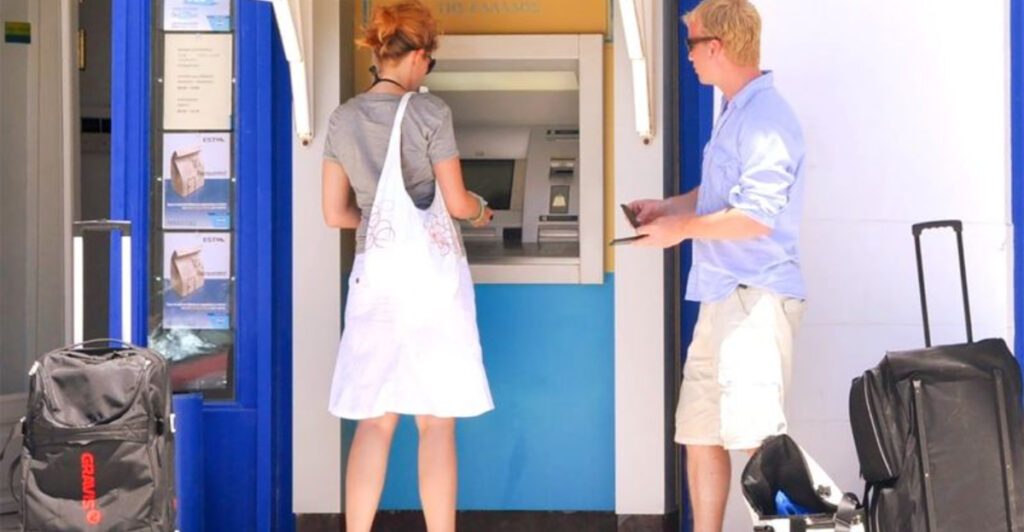Traveling abroad should be exciting, not stressful. Unfortunately, many countries have clever scammers who specifically target American tourists because they know we often carry cash and may not understand local customs. Learning about these common tricks before you travel can save you hundreds of dollars and protect you from dangerous situations that could ruin your entire trip.
1. The Fake Taxi Overcharge
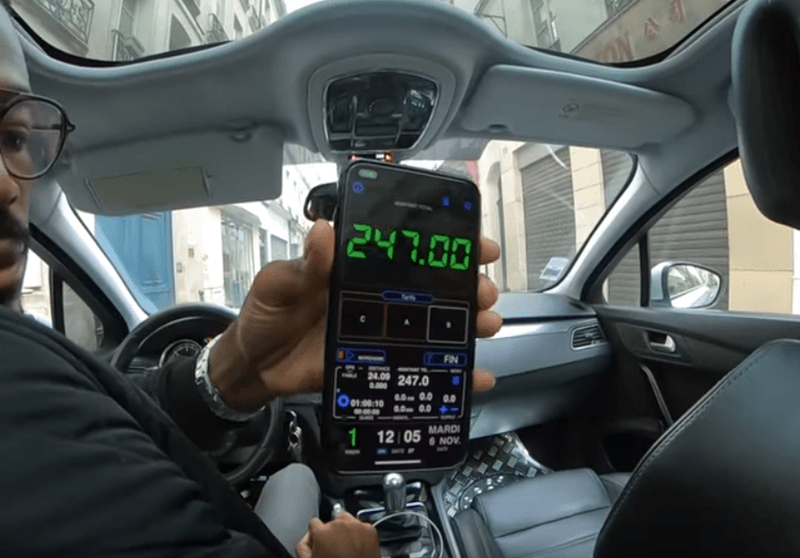
Airport arrivals can be chaotic, making it easy for fake taxi drivers to prey on tired travelers. These unlicensed operators often approach tourists directly, offering rides at seemingly reasonable prices.
Once you’re in the vehicle, they either claim their meter is broken or take unnecessarily long routes to inflate the fare. Some even demand payment in foreign currency at terrible exchange rates.
Always use official taxi stands or ride-hailing apps like Uber. If you must use a street taxi, agree on the exact price before getting in and insist they use the meter when available.
2. The “Friendly” Stranger Offering Help
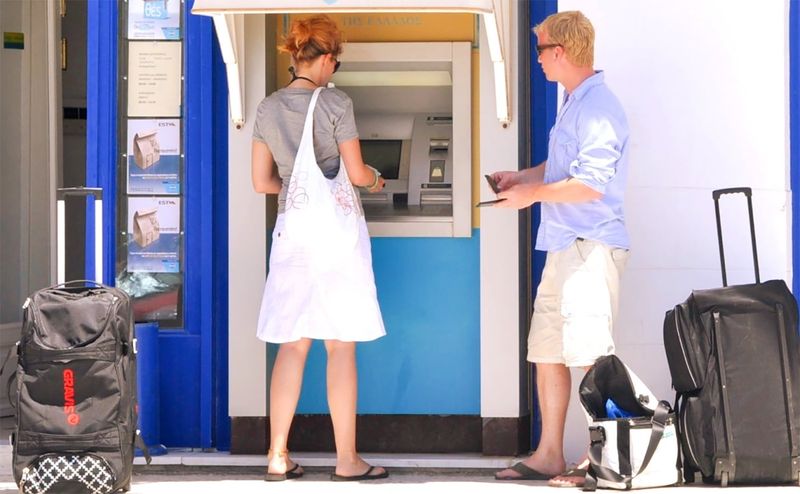
Picture this: you’re standing at an ATM looking confused, and suddenly a helpful local appears, eager to assist with your transaction. While most people are genuinely kind, scammers exploit this natural helpfulness.
These fraudsters watch you enter your PIN, then either distract you while withdrawing extra cash or quickly memorize your card details. Some even offer to help carry your bags to a taxi, only to disappear with your belongings.
Politely decline unsolicited help, especially around ATMs or when handling money. Use official information desks at hotels or tourist centers instead of accepting street assistance from strangers.
3. The Broken Taxi Meter
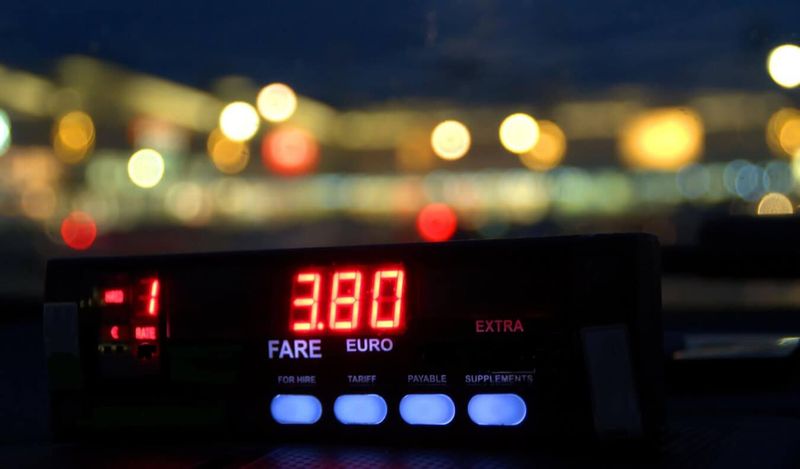
You hop into what appears to be a legitimate taxi, but as soon as you mention your destination, the driver points to a conveniently “broken” meter. Suddenly, your short ride becomes an expensive nightmare.
This classic scam works because tourists often feel trapped once they’re already in the vehicle. Drivers typically quote prices three to five times higher than normal fares, knowing visitors have little choice but to pay.
Before entering any taxi, check that the meter works properly. If the driver claims it’s broken, exit immediately and find another cab. Many cities also have official taxi apps that show estimated fares beforehand.
4. The Closed Attraction Scam
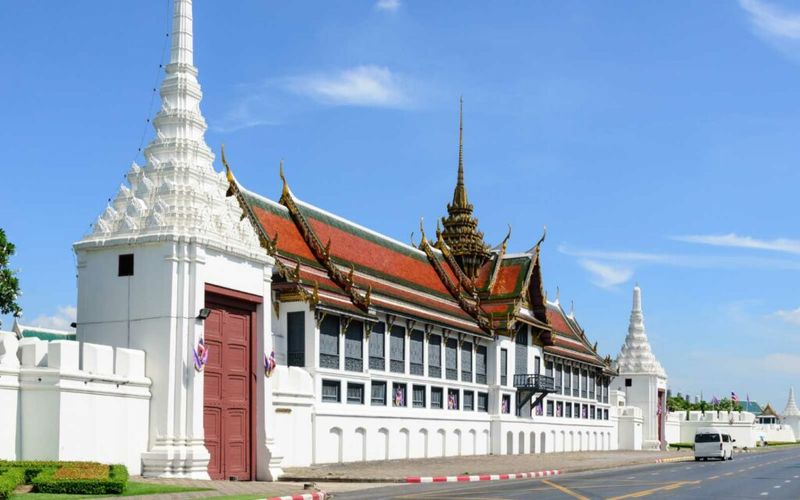
Just as you arrive at that famous museum you’ve been dying to visit, a concerned local approaches with disappointing news: it’s closed for renovations. Fortunately, they know an even better place nearby!
These helpful strangers inevitably lead you to overpriced shops, restaurants, or lesser attractions where they earn hefty commissions from your purchases. Meanwhile, the original attraction was open all along.
Before changing your plans, verify information independently. Check official websites, call the attraction directly, or ask at your hotel’s front desk. Real closures are usually well-publicized, and legitimate locals won’t pressure you to visit specific alternative locations immediately.
5. The Fake Police Scam
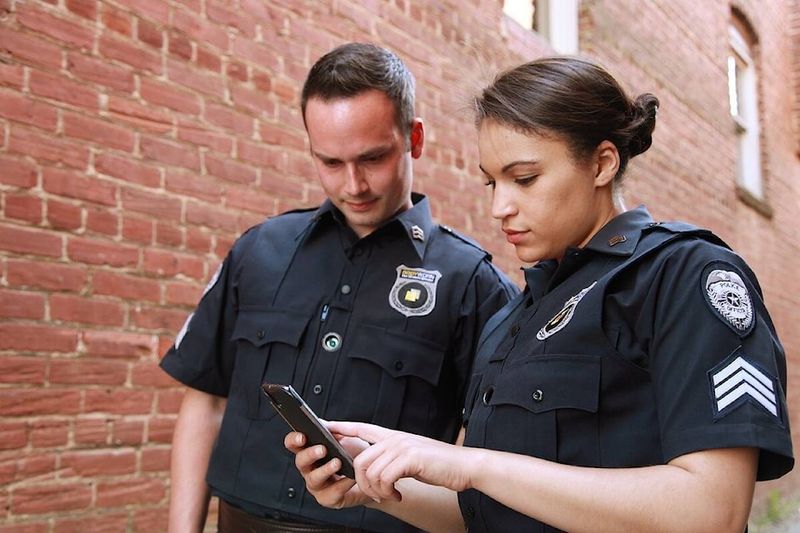
Two official-looking men in uniforms approach you on the street, claiming to be undercover police investigating counterfeit money or drug trafficking. They demand to inspect your wallet and passport immediately.
Real police rarely conduct random street checks on tourists, and legitimate officers always carry proper identification. These scammers rely on your natural respect for authority and fear of legal trouble.
Always ask to see official badges and identification cards. Request to accompany them to the nearest police station rather than handling the matter on the street. Never hand over your entire wallet – offer to show individual items instead while keeping control of your belongings.
6. The Overpriced Restaurant Menu
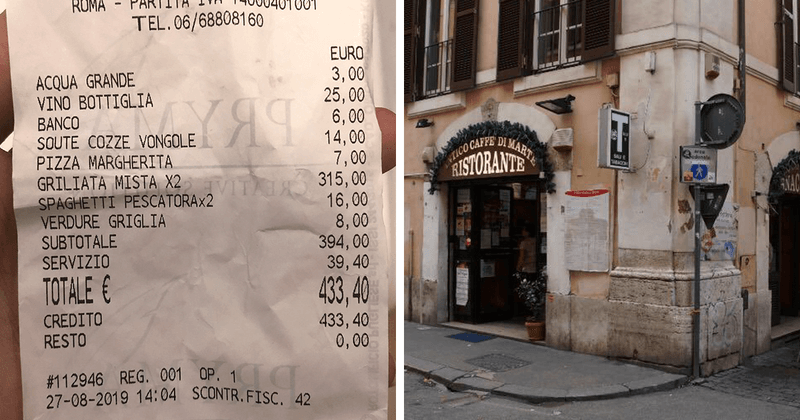
You enjoy a lovely dinner at a charming local restaurant, but when the bill arrives, the prices seem impossibly high. The waiter produces a different menu with inflated costs, claiming this was always the pricing.
Some restaurants keep multiple menus – showing tourists expensive versions while locals get reasonable prices. Others simply hope you won’t remember the original costs after a few drinks.
Take photos of menus before ordering, especially if prices seem unusually low for the location. Research typical meal costs online beforehand, and don’t hesitate to question discrepancies. Many travel apps also provide average restaurant pricing for specific cities and neighborhoods.
7. The “Free” Bracelet or Gift
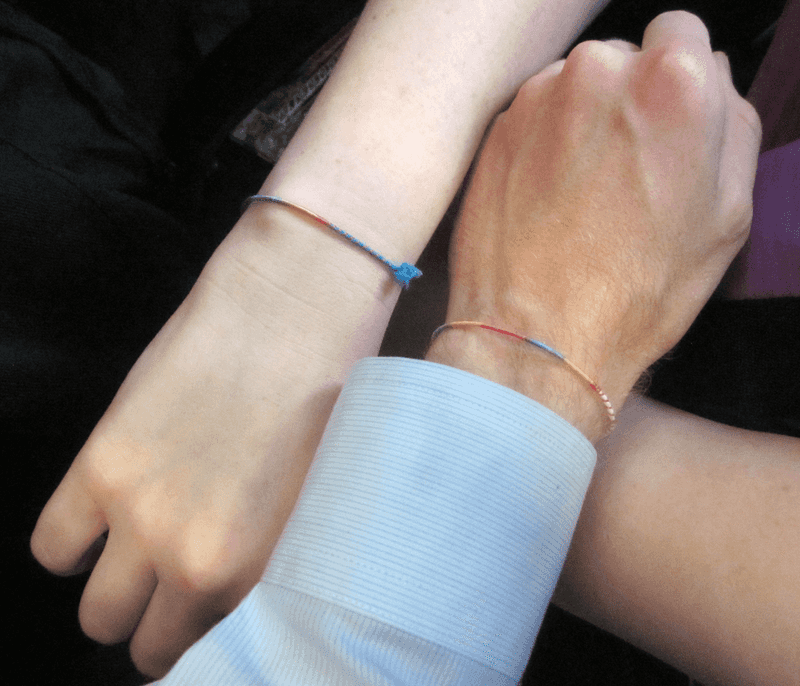
Walking through a bustling market, someone suddenly places a colorful bracelet on your wrist or hands you a beautiful flower, insisting it’s a gift to welcome you to their country.
The moment you accept their “generosity,” they demand payment – often becoming aggressive or claiming cultural tradition requires compensation. Some work in groups, surrounding tourists who refuse to pay.
Never accept unsolicited items from strangers, even if they seem harmless. Keep your hands in your pockets or crossed when walking through areas with aggressive vendors. If someone forces an item on you, drop it immediately and walk away without engaging in conversation or negotiation.
8. The Fake Petition Distraction
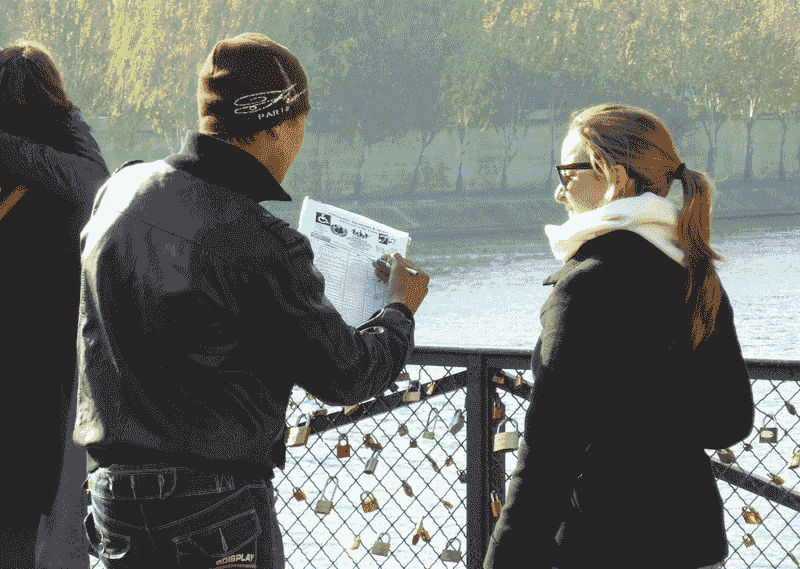
A group of earnest young people approaches with clipboards, asking you to sign a petition for a worthy cause like helping deaf children or supporting environmental protection.
While you focus on reading their petition, accomplices quietly rifle through your pockets, backpack, or purse. By the time you realize what happened, they’ve vanished into the crowd with your valuables.
Legitimate charities don’t typically solicit signatures from tourists in popular areas. Politely decline to sign anything from strangers, especially when approached by groups. Keep bags zipped and positioned in front of your body when walking through crowded tourist zones where these scams are common.
9. The Counterfeit Money Switch
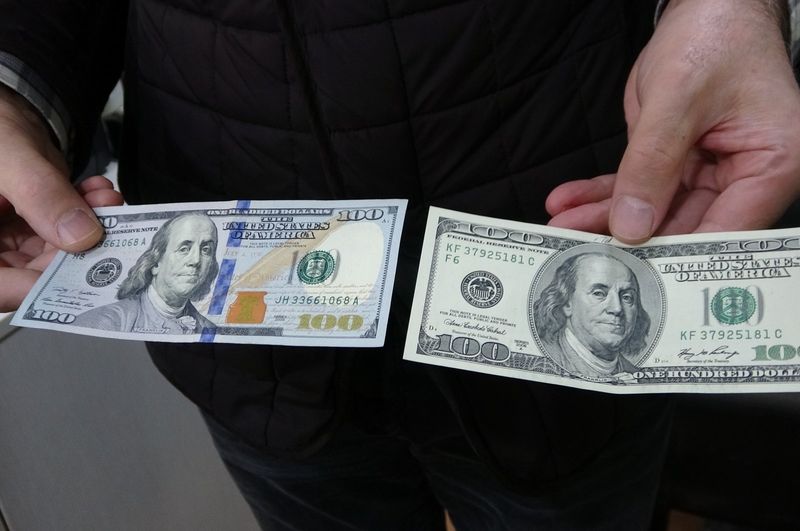
After purchasing souvenirs, the vendor examines your payment carefully, then angrily claims you’ve given them counterfeit money. They demand real currency while pocketing your genuine bills.
This sleight-of-hand trick works because tourists often can’t distinguish between real and fake local currency. Scammers practice the switch until it’s nearly undetectable, especially in dim lighting or crowded conditions.
Familiarize yourself with local currency security features before traveling. When making purchases, clearly display your money before handing it over, and consider noting serial numbers on larger bills. If accused of using fake money, ask to involve local police or go to a bank for verification.
10. The ATM Skimming Scam
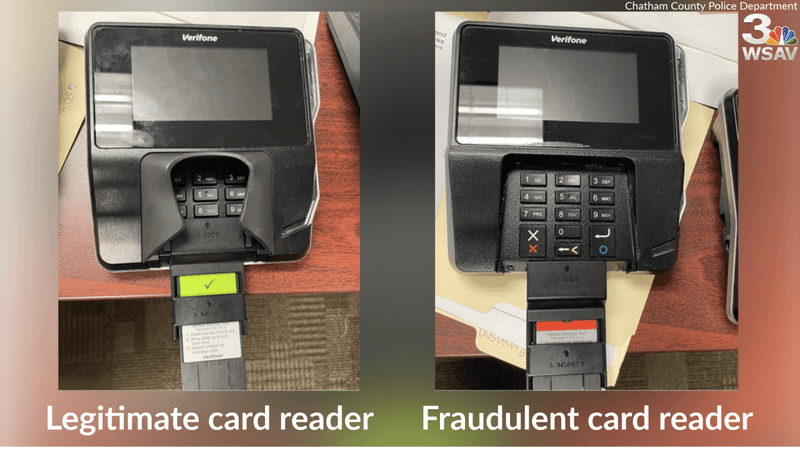
ATM skimming has become increasingly sophisticated, with devices that perfectly mimic legitimate card readers. Criminals install these nearly invisible gadgets on machines throughout tourist areas.
When you insert your card, the skimmer copies all your information while a tiny camera records your PIN entry. Within hours, scammers can create duplicate cards and drain your accounts.
Use ATMs inside banks whenever possible, as they’re monitored more closely. Before inserting your card, check for anything that looks loose, different, or recently attached. Cover your PIN entry with your free hand, and monitor your accounts daily while traveling. Report suspicious activity immediately to your bank.
11. The Gem Scam (Especially in Asia)
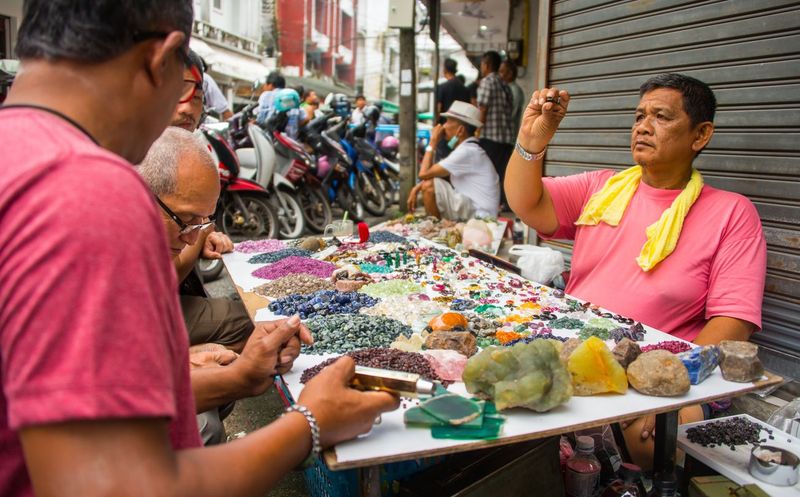
A well-dressed businessman strikes up a conversation, mentioning he’s in the jewelry trade. He offers to show you incredible gems at wholesale prices, claiming you could resell them for huge profits back home.
These “precious” stones are actually worthless glass or low-grade materials. The elaborate showroom and professional presentation convince many tourists they’ve found a once-in-a-lifetime opportunity.
Legitimate gem dealers don’t approach random tourists on the street or in hotels. Even if stones appear genuine, international shipping, customs, and authentication costs often exceed any potential profits. Stick to reputable, established jewelers with proper certifications if you must purchase expensive items while traveling.
12. The Fake Tour Guide

Outside popular attractions, enthusiastic individuals offer guided tours at bargain prices, claiming intimate knowledge of secret locations and hidden history that official guides won’t share.
These unauthorized guides often provide inaccurate information, take you to shops where they earn commissions, or simply abandon you halfway through the tour after collecting payment upfront.
Book tours through reputable agencies, your hotel concierge, or official visitor centers. Licensed guides carry proper identification and insurance. While they may cost more initially, legitimate tours provide accurate information, safety guarantees, and recourse if problems arise. Always verify credentials before paying for any guided services.
13. The “You Dropped Something” Trick
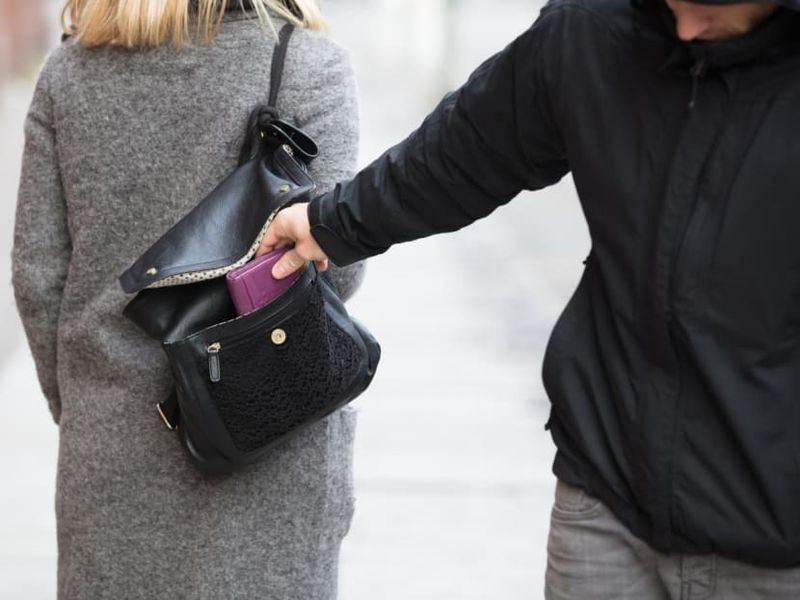
Someone behind you calls out that you’ve dropped money or jewelry. As you instinctively stop and check your belongings, their accomplice quickly pickpockets your phone, wallet, or passport.
This distraction technique exploits our natural tendency to verify we haven’t lost something valuable. The initial caller may even show you fake money or jewelry to make the scenario more believable.
If someone claims you dropped something, don’t immediately stop and search through your belongings. Instead, continue walking while discretely checking your pockets. Most pickpocket teams abandon their attempts when targets don’t react predictably. Trust your instincts – if something feels wrong, it probably is.
14. The Overcharging Currency Exchange

Currency exchange booths in tourist areas often display attractive rates on large signs, but the actual transaction tells a different story. Hidden fees, poor exchange rates, and deliberate miscounting separate you from your money.
Some operators use confusing calculations or fast-talking techniques to prevent you from verifying the math. Others simply shortchange you, hoping you won’t count carefully before leaving.
Research current exchange rates online before traveling, and compare multiple exchange locations. Banks typically offer fair rates with transparent fees. Count your money carefully before leaving any exchange counter, and don’t let operators rush you through the transaction. Consider using ATMs instead, which often provide better rates despite withdrawal fees.
15. The Drink Spiking Scam (Common in Nightlife Areas)

Nightlife districts attract criminals who target tourists with drink spiking schemes. A friendly stranger buys you a cocktail or offers to share their bottle, but the beverage contains drugs that impair your judgment.
Once you’re incapacitated, they steal your money, credit cards, and valuables. Some victims wake up hours later with no memory of events and significant financial losses.
Only accept drinks you personally watch being prepared by bartenders. Never leave beverages unattended, even briefly. If you feel unusually dizzy, confused, or sick after drinking small amounts, seek help immediately from venue security or police. Travel with trusted companions who can watch for suspicious behavior and ensure your safety.
16. The Fake Wi-Fi Hotspot
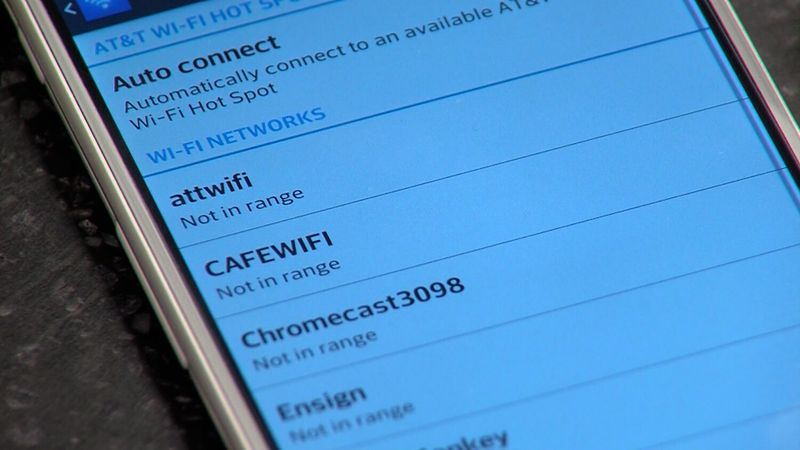
Free Wi-Fi networks with names like “Airport_Free” or “Hotel_Guest” seem convenient, but criminals create these fake hotspots to steal your personal information and passwords.
When you connect to these networks, scammers can monitor everything you do online – reading emails, capturing banking information, and accessing social media accounts. The damage often isn’t discovered until you return home.
Verify network names with official staff before connecting to any Wi-Fi. Use a VPN service to encrypt your internet traffic, making it unreadable even if intercepted. Avoid accessing sensitive accounts like banking or email on public networks. Consider purchasing an international data plan instead of relying on unknown Wi-Fi connections.
17. The Luggage Theft at Transit Hubs
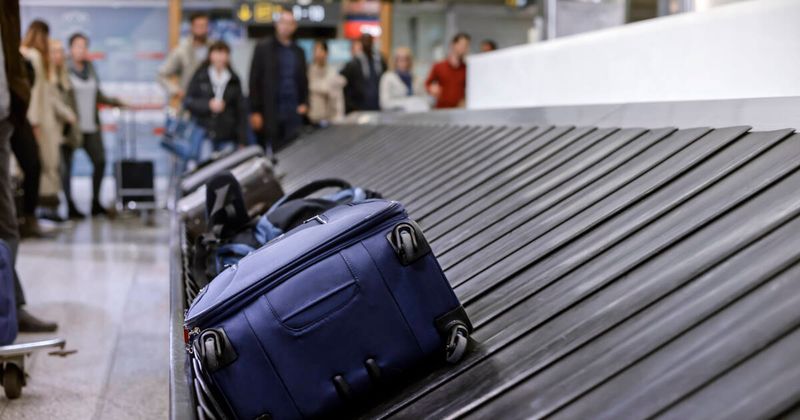
Airports and train stations buzz with helpful people offering to assist with heavy luggage, but some of these “good Samaritans” are actually thieves looking for easy targets.
They may offer to watch your bags while you use the restroom, help carry suitcases to taxis, or provide directions while an accomplice grabs your belongings. By the time you realize what happened, they’ve disappeared into the crowd.
Keep luggage within sight at all times, even when using facilities. Use official porter services with proper identification and uniforms rather than accepting help from random strangers. Secure bags with TSA-approved locks, and never leave valuables in easily accessible pockets or compartments.
18. The Timeshare or Vacation Club Scam
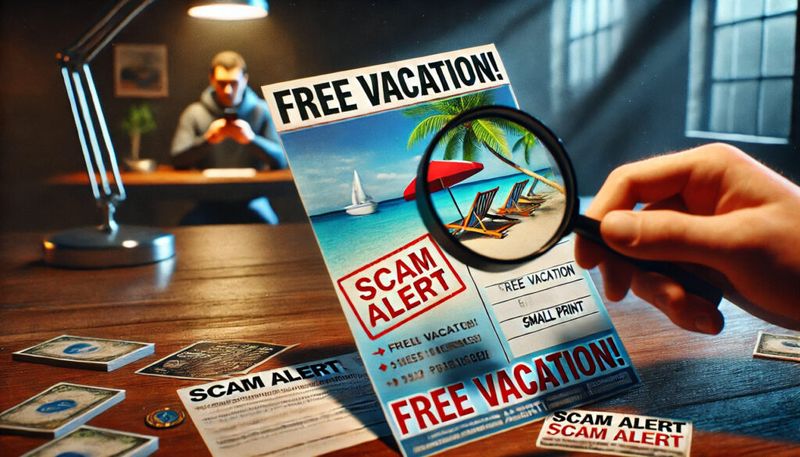
Aggressive salespeople approach tourists with exciting offers: free meals, show tickets, or hotel upgrades in exchange for attending a “brief” presentation about vacation opportunities.
These high-pressure sales events can last hours, with teams of salespeople using psychological tactics to force you into signing expensive, long-term contracts for properties or vacation packages you don’t want or need.
Legitimate travel deals don’t require high-pressure sales presentations. If something sounds too good to be true, it probably is. Never sign contracts while traveling, especially under pressure. Research any company thoroughly online, and remember that walking away from “limited time” offers is always an option, regardless of what salespeople claim.
19. The Fake Ticket Scam
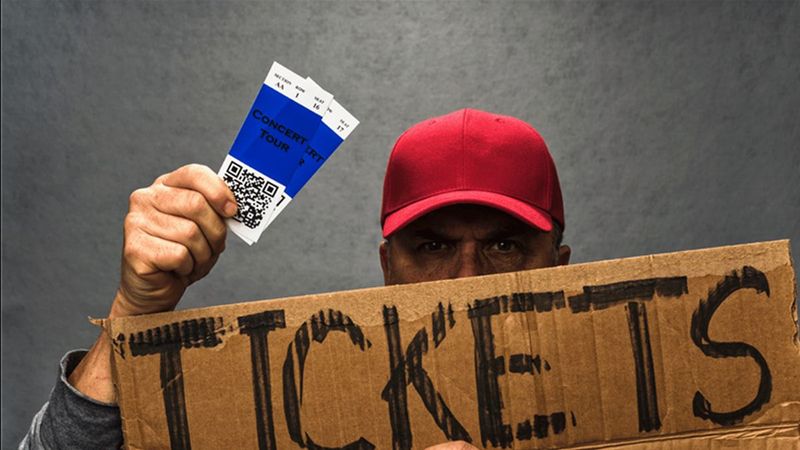
Outside popular venues, scalpers offer tickets to sold-out shows, sporting events, or attractions at seemingly reasonable prices. Unfortunately, these tickets are often sophisticated counterfeits that won’t scan at entry gates.
Some scammers even set up fake websites that look official, complete with seating charts and confirmation emails. You only discover the fraud when you’re turned away at the venue entrance.
Purchase tickets exclusively from official box offices, authorized vendors, or verified resale platforms. Be suspicious of deals that seem too good to be true, especially for high-demand events. If buying from individuals, meet at the venue and verify tickets work before completing the transaction. Keep receipts and confirmation numbers for all purchases.
20. The Distraction Theft (Often with Kids)
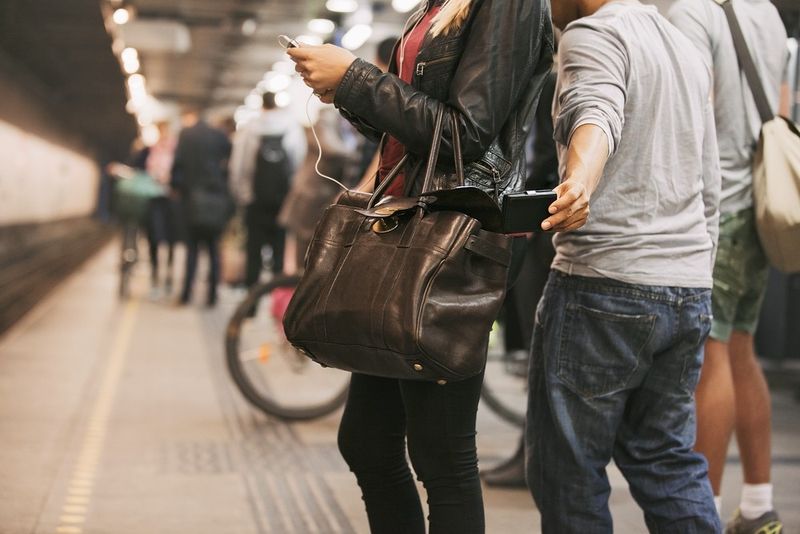
A group of children suddenly surrounds you, some tugging at your clothes while others create chaos by spilling drinks, fighting, or performing tricks. The commotion seems innocent enough, but it’s actually a coordinated theft operation.
While you’re distracted by the spectacle, skilled adult pickpockets work through the crowd, stealing phones, wallets, and cameras from unsuspecting tourists who are focused on the children’s antics.
Stay alert in crowded tourist areas where these performances commonly occur. Keep valuables in front-facing, zipped pockets or use a money belt under your clothing. If surrounded by aggressive children or unusual commotion, move to a less crowded area immediately. Don’t let sympathy override your awareness of surroundings.

